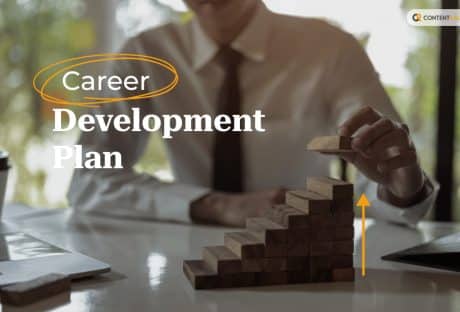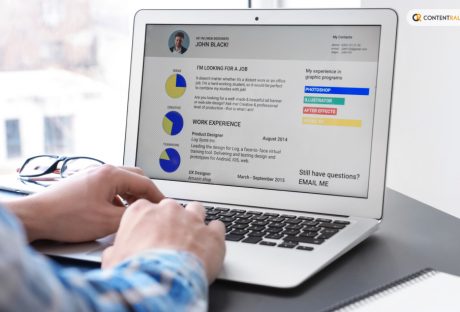You’ve been asked to conduct a job interview for the first time—exciting, right? Worrying about how to conduct an interview?
Whether you’re a manager, HR professional, or part of a hiring committee, interviewing someone can feel a bit nerve-wracking if you’ve never done it before.
But guess what?
You don’t need to be an expert to do it well. With some preparation and the right approach, you can conduct a smooth, professional, and even enjoyable interview.
Let’s walk through how to make it a success from start to finish.
Step 1: Know What You Want

You can’t exactly hire the right person when you’re not sure who that is. Don’t be too vague or unclear about what you’re looking for. If your expectations for the employee are constantly changing, they will never have a fair chance of meeting those expectations.
So, when you begin interviewing with the right skills, you should know what skill you are looking for.
Most importantly, do not look for one candidate with all the skills. They will all have their strengths and weaknesses. It is you who must filter and understand what is needed with the role.
Here are some of the skills that you should investigate when preparing to conduct an interview.
Technical Skills: What knowledge or skills does the candidate need to perform the job? This might include things like a coding language, specific design experience, knowledge of certain software tools, etc.
Soft Skills: Are any exceptional communication, collaboration, or problem-solving abilities needed for this role? Consider the conceptual skills that will make someone stay and fit within your team and company culture.
Company Values: Every company has its own culture. Do you want someone who aligns with your organization’s values? This could be creativity, innovation, teamwork, adaptability.
By keeping these in mind, you can design questions around them during the interview.
Step 2: Create Your List of Interview Questions

Now that you know what you are looking for, it is time to develop a list of questions. You will want to ask questions that evaluate technical as well as soft skills.
Please don’t make one of these common interviewing mistakes by asking dull and generic questions – you’ll get equally dull and generic answers!
Plus, fail to make the most out of the interview, trying to understand your candidate’s potential.
Here’s how to word your questions
Leaning into the Role
Start with some icebreakers—easy open-ended questions like.
“What made you consider applying for this job?” or
“Tell me a little about yourself.”). This helps people get comfortable and sets the stage for them to tell their stories.
Behavioral Questions
A must in gauging soft skills.
“Can you describe a time when you worked under pressure?”
Or
“Tell me about a challenging project you managed and how you handled it” are great questions to see how candidates react in scenarios they’re likely to encounter.
Role-Specific Questions
When preparing to conduct an interview, always ask questions directly applicable to the job.
For example, if you’re hiring for a marketing position, ask something like, “What’s been your most successful campaign, and why?” Use this time to understand their practical knowledge.
Cultural Fit Questions
These are often overlooked but critical for long-term success. Especially if you plan to keep the candidate for a long-term job role.
You can ask,
“How do you like to collaborate with others?”
Or
“What kind of work environment helps you thrive?” You’re looking for answers that align with YOUR company’s culture!
Step 3: Create a Comfortable Environment

The interview is not only for you to assess the candidate, but also for the candidate to see if they would like to work with you.
It doesn’t matter how much you are offering as a CTC. If candidates sense a hostile environment, they might not be comfortable returning!
Feeling comfortable will help bring out their true self and you don’t want to make someone uncomfortable, do you?
This is one of the reasons why we need to make some of the
Not too casual, just friendly – this will lead to much better conversations. After all, you wouldn’t want to lose a promising candidate because of a bad experience.
Start with small talk: A simple “How was your commute?” or “Have you ever been to this part of town before?” can help make things more casual from the get-go.
Explain the structure: Take a second to let candidates know what will happen. Are they expected to walk you through their resume? Will there be time for them to ask questions at the end? Giving them an idea of the agenda will help everyone feel more at ease.
Active listening: It’s important to show that you’re listening by nodding, smiling, and making eye contact. This will also help your candidate feel more at ease, and hopefully, they will give more honest and open answers.
Step 4: Listen and Observe

This one seems simple enough, but it’s big!
A lot of first-time interviewers get so caught up in what they’re going to ask next that they don’t really hear the candidate’s reply.
A successful interview is partly about asking the right questions and partly about hearing the answer (and non-answer) to the question you asked.
Here are a few additional tips on how to conduct an interview!
Take notes: Don’t be afraid to jot down key points as the candidate speaks. It helps you remember important details and can guide your follow-up questions.
Look for red flags: Pay attention to inconsistencies or vague responses. For example, if a candidate can’t provide clear examples of their experience, that could be a red flag.
Step 5: Allow time for questions

This is something that many interviewers (and especially first-time interviewers) tend to miss.
The kinds of questions that candidates come prepared with can tell you much about what’s on the forefront of their minds.
Especially where they’re at with their understanding of the role. Here are some of the unique interview questions that potential candidates might ask you.
Good signs: A candidate who asks thoughtful questions about things like company mission, team dynamics, or opportunities for personal growth is generally someone who is thinking long-term and has a genuine interest here.
Red flags: I would be cautious if a candidate starts off too much about perks, vacation and salary. Maybe their priorities are not on align with the role or company values.
Step 6: Wrap Up the Interview Positively

When the interview is almost over, you have a chance to give candidates any last-minute information that might be important to their decision-making process.
Plus, it’s just polite and keeps your employer’s brand intact.
Explain the next steps: Let the candidate know what will happen next. Will they hear back in a week? Is there a second round of interviews? Giving them a timeline helps manage expectations.
Thank them: It’s always a good idea to thank the candidate for their time and interest in the position. A little courtesy goes a long way.
How to Talk About “Futureproofing” in Interviews
One thing hiring guides don’t usually teach you about is futureproofing!
In an age where entire industries are in flux, you need someone who can change along with it. Remember, you’re not hiring for the role today—you’re hiring for where your company will be a year from now. So, how do you know if someone has what it takes to grow and adapt?
Here are some future-proofing questions you can ask:
“How do you keep up with new trends and changes happening in your industry?”
“What about a time you needed to learn new skills or adapt to a big change at work? What steps did you take?”
“What do you think is an area you will need to develop professionally in over the next few years?”
Are you happy with your evaluation processes and tools in place that can evaluate a candidate’s psychological inclination to engage in learning activities?
If not, please adopt aptitude testing as a form of your interview.
Step 7: Evaluating and Comparing Candidates

After the interview, assess candidates while everything is still clear.
Skills and experience: How well-matched were their skills and experience with your must-haves and nice-to-haves? Were there any areas in which they surpassed your expectations?
Personality and culture fit: This is perhaps the most critical factor. Ask yourself if you think they would be a good fit for your team. Did they have values like those of you or your company when it came to work?
Scoring system: I’ve heard of some interviewers who use a 1–5 scale (rating candidates on experience, skill set, communication and others in their interviews. Plus, this helps them make an objective decision, especially if you conduct multiple interviews.
Take a Deep Breathe!
Conducting a job interview for the first time doesn’t need to be nerve-wracking. Preparation, active listening, and creating a comfortable environment are the keys to success.
Remember, an interview is a two-way street: you’re assessing the candidate, but they’re also evaluating whether they want to work with you.
Don’t forget the growing importance of future-proofing. Asking questions that talk about the candidate’s adaptability and desire to grow can help ensure you’re hiring someone who’s ready not just for today’s challenges, but for tomorrow’s as well.
You’ve got this! Follow these steps of how to conduct an interview, stay calm, and trust the process. Your first interview will be a success.
Read Also:























